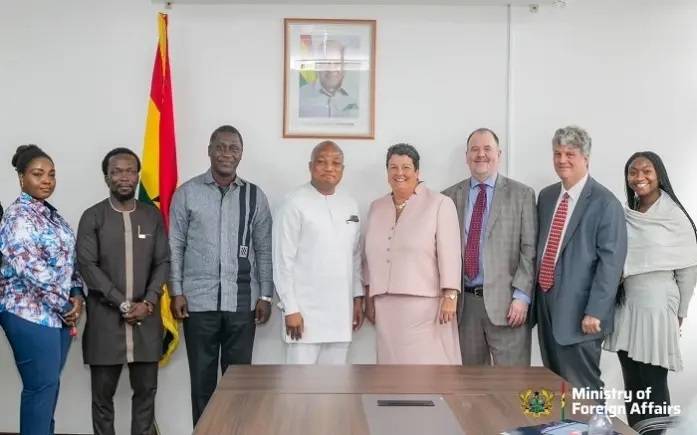Ghanaian authorities are actively engaging with the United States to mitigate the effects of the newly imposed 10% tariff on Ghanaian exports, which took effect on April 5, 2025. This effort follows a high-level meeting between Ghana’s Minister of Foreign Affairs, Samuel Okudzeto Ablakwa, and the US Ambassador to Ghana, Virginia Palmer. The discussion centered on identifying ways to reduce the economic burden on Ghanaian businesses and exploring potential exemptions for key exports.
The US Ambassador clarified that the tariff was not specifically targeted at Ghana but was part of a broader policy aimed at addressing global trade imbalances. The measure falls under the International Emergency Economic Powers Act (IEEPA) of 1977, a law that allows the US government to regulate commerce in response to national emergencies. While Ghana is affected by this decision, it joins other trade partners facing similar tariffs.
One significant concern raised during the meeting was the impact on Ghana’s exports through the African Growth and Opportunity Act (AGOA), a program designed to provide African nations with preferential access to the US market. While certain products like oil, gas, and energy-related goods remain exempt from the new tariff, other exports traditionally benefiting from AGOA—including textiles, garments, and agricultural products—are now subject to additional costs.
Recognizing the potential economic challenges, the Ghanaian government is focusing on securing exemptions for specific industries, particularly cocoa and garment manufacturing. These sectors play a critical role in Ghana’s economy, providing employment to thousands and contributing significantly to export revenues. The tariff could lead to increased costs for Ghanaian businesses and reduce their competitiveness in the US market, making exemption negotiations crucial.
Both Ghanaian and US officials expressed a commitment to continuing discussions to find a solution that minimizes economic disruptions. Job losses are among the primary concerns, and efforts are being made to safeguard employment opportunities by negotiating favorable terms for affected industries. The Ghanaian government, through its Ministries of Foreign Affairs and Trade, Agribusiness, and Industry, will persist in its engagement with US authorities to alleviate the burden on exporters.
As talks progress, Ghanaian businesses and policymakers will closely monitor developments, hoping for positive outcomes that support sustained trade relations between the two countries. The resolution of these negotiations will be crucial in shaping Ghana’s trade landscape and ensuring continued growth despite the newly imposed tariff.




No comments yet
Be the first to share your thoughts!